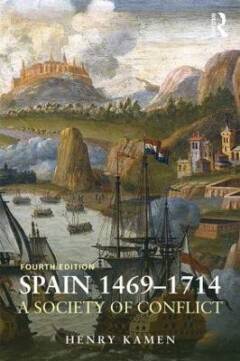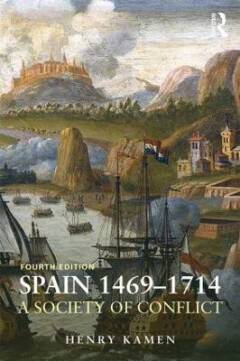
- Afhalen na 1 uur in een winkel met voorraad
- Gratis thuislevering in België vanaf € 30
- Ruim aanbod met 7 miljoen producten
- Afhalen na 1 uur in een winkel met voorraad
- Gratis thuislevering in België vanaf € 30
- Ruim aanbod met 7 miljoen producten
Omschrijving
For nearly two centuries Spain was the world's most influential nation, dominant in Europe and with authority over immense territories in America and the Pacific. Because none of this was achieved by its own economic or military resources, Henry Kamen sets out to explain how it achieved the unexpected status of world power, and examines political events and foreign policy through the reigns of each of the nation's rulers, from Ferdinand and Isabella at the end of the fifteenth century to Philip V in the 1700s.
He explores the distinctive features that made up the Spanish experience, from the gold and silver of the New World to the role of the Inquisition and the fate of the Muslim and Jewish minorities. In an entirely re-written text, he also pays careful attention to recent work on art and culture, social development and the role of women, as well as considering the obsession of Spaniards with imperial failure, and their use of the concept of 'decline' to insist on a mythical past of greatness. The essential fragility of Spain's resources, he explains, was the principal reason why it never succeeded in achieving success as an imperial power.
This completely updated fourth edition of Henry Kamen's authoritative, accessible survey of Spanish politics and civilisation in the Golden Age of its world experience substantially expands the coverage of themes and takes account of the latest published research.
Specificaties
Betrokkenen
- Auteur(s):
- Uitgeverij:
Inhoud
- Aantal bladzijden:
- 340
- Taal:
- Engels
Eigenschappen
- Productcode (EAN):
- 9781408271933
- Verschijningsdatum:
- 8/05/2014
- Uitvoering:
- Paperback
- Formaat:
- Trade paperback (VS)
- Afmetingen:
- 155 mm x 231 mm
- Gewicht:
- 566 g

Alleen bij Standaard Boekhandel
Beoordelingen
We publiceren alleen reviews die voldoen aan de voorwaarden voor reviews. Bekijk onze voorwaarden voor reviews.








